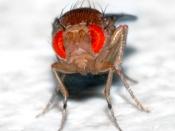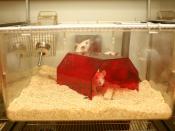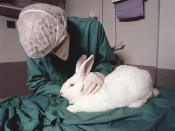Introduction
Animal experimentation has been a part of biomedical and behavioral research for several millennia; experiments with animals were conducted in Greece over 2,000 years ago. Many advances in medicine and in the understanding of how organisms function have been the direct result of animal experimentation.
Concern over the welfare of laboratory animals is also not new, as reflected in the activities of various animal welfare and antivivisectionist groups dating back to the nineteenth century. This concern has led to laws and regulations governing the use of animals in research and to various guides and statements of principle designed to ensure humane treatment and use of laboratory animals.
HISTORICAL BACKGROUND
Use of Animals in Research
Some of the earliest recorded studies involving animals were performed by Aristotle (384-322 B.C.), who revealed anatomical differences among animals by dissecting them (Rowan, 1984). The Greek physician Galen (A.D. 129-199) maintained that experimentation led to scientific progress and is said to have been the first to conduct demonstrations with live animals--specifically pigs-a practice later extended to other species and termed 'vivisection' (Loew, 1982).
However, it was not until the sixteenth century that many experiments on animals began to be recorded. In 1628, William Harvey published his work on the heart and the movement of blood in animals (French, 1975). In the 18OOs, when France became one of the leading centers of experimental biology and medicine-marked by the work of such scientists as Francis Magendie in experimental physiology, Claude Bernard in experimental medicine, and Louis Pasteur in microbiology and immunology-investigators regularly used animals in biomedical research (McGrew, 1985).
Research in biology progressed at an increasing pace starting around 1850, with many of the advances resulting from experiments involving animals. Helmholtz studied the physical and chemical activities associated with the nerve impulse; Virchow developed the science...


